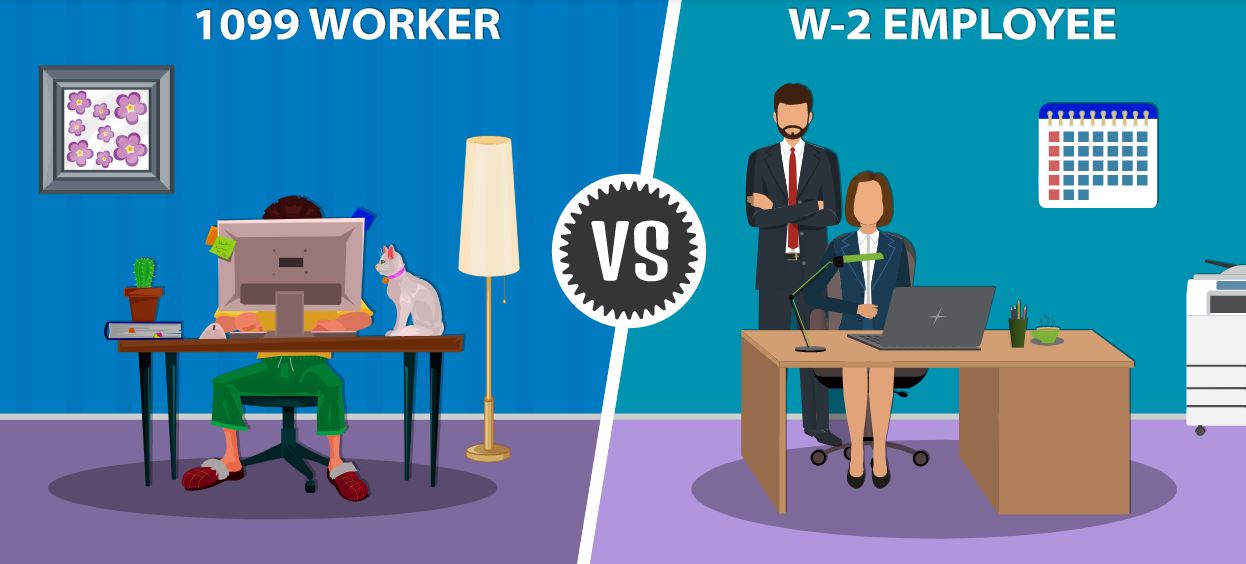Let’s be honest. Trying to figure out the difference between independent contractors and employees and when to use 1099s and W-2s can be confusing and overwhelming for most new business owners. It is important that you have a basic understanding of how to classify workers, even if you have a payroll service or accountant to do the heavy lifting when it comes to paying them.
Whether your workers are employees or independent contractors affects how both you and they are taxed. For example, you must withhold income taxes, withhold and pay Social Security and Medicare taxes, and pay unemployment tax on wages paid to an employee. You don’t usually have to withhold or pay taxes on payments to an independent contractor. Then there is the issue of Workers Compensation Insurance and figuring out if your workers are independent contractors or, are they, employees. If they are considered employees, even part-time employees, you are legally required to carry Workers Compensation Insurance. California Labor Code Section 3700
on January 14, 2021, the California Supreme Court held that the “ABC Test” for classifying workers as independent contractors applies retroactively. The high court first articulated this standard, which makes it tougher for businesses and employers to classify their workers as independent contractors, in its 2018 decision in Dynamex Operations West, Inc. v. Superior Court.
Under the ABC Test, a worker is presumed to be an employee unless the employer can show that all three of the following conditions are satisfied:
A) The worker is free from the control and direction of the hiring entity in connection with the performance of the work.
B) The worker performs work that is outside the usual course of the hiring entity’s business.
C) The worker is customarily engaged in an independently established trade, occupation, or business of the same nature as that involved in the work performed.
Last week, in Vazquez et al. v. Jan-Pro Franchising International, the California Supreme Court considered the question of how to classify workers in suits that were pending at the time that the Court first articulated the ABC Test in Dynamex. The Court declined to depart from the general rule that judicial decisions are given retroactive effect unless stated otherwise, holding that the ABC Test applies to workers in all cases that were pending at the time Dynamex was decided. Notably, the Court declined to take up the issue of whether an employer’s use of franchising arrangements with its workers has any effect on the applicability of Dynamex and the ABC Test. The Ninth Circuit has previously determined that it does not. The case now returns to the Ninth Circuit where the court will determine whether the Jan-Pro franchisees were employees or independent contractors using the ABC Test.
The Vasquez decision does not, however, apply to AB 5, which codified and expanded the ABC Test by integrating the standard into California’s Labor Code and Unemployment Insurance Code.
A portion of this article was written by Grant J. Horton. © Polsinelli PC, Polsinelli LLP in California National Law Review, Volume XI, Number 20
- Are you ready for some tips on how to purchase Workers Compensation like a pro? Check out our Free Resource Guide.




